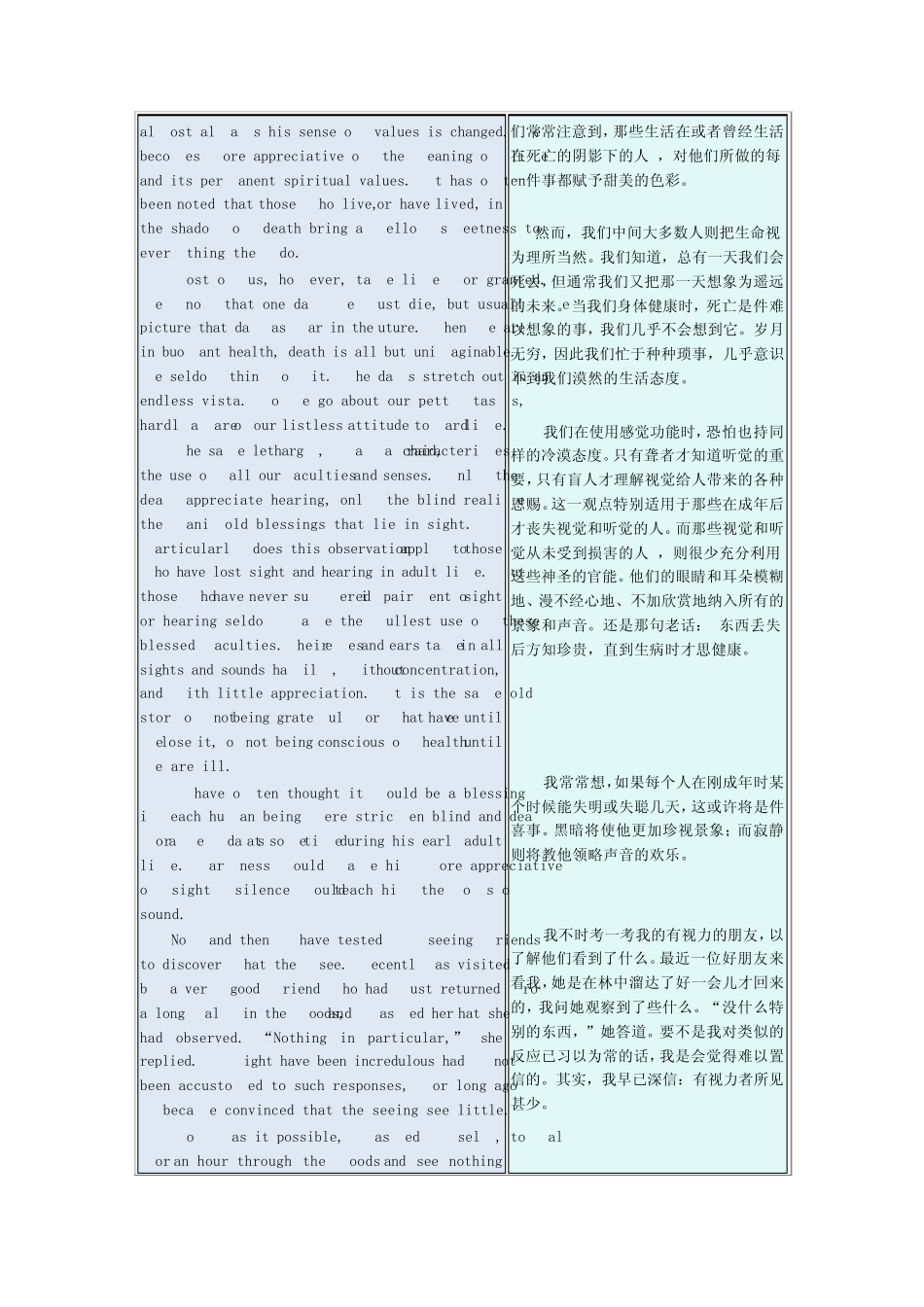参考译文 1. 课文一 2. 课文二 Text 1 Three Days to See by Helen Keller Helen Keller, blind and deaf from infancy, became a successful lecturer, author and educator with the help of her teacher. In the following essay, she discussed how people should value their ability to see. All of us have read thrilling stories in which the hero had only a limited and specified time to live. Sometimes it was as long as a year; sometimes as short as twenty-four hours. But always we were interested in discovering just how the doomed man chose to spend his last days or his last hours. I speak, of course, of free men who have a choice, not condemned criminals whose sphere of activities is strictly delimited. Such stories set us thinking, wondering what we should do under similar circumstances. What events, what experiences, what associations should we crowd into those last hours as mortal beings? What happiness should we find in reviewing the past, what regrets? Sometimes I have thought it would be an excellent rule to live each day as if we should die tomorrow. Such an attitude would emphasize sharply the values of life. We should live each day with a gentleness, a vigor, and a keenness of appreciation which are often lost when time stretches before us in the constant panorama of more days and months and years to come. There are those, of course, who would adopt the Epicurean motto of “Eat, drink, and be merry;” but most people would be chastened by the certainty of impending death. In stories, the doomed hero is usually saved at the last minute by some stroke of fortune, but 课文一 假如我有三天光明 海伦·凯勒 海伦·凯勒自幼就又盲又聋,在老师的帮助下成为一名成功的讲师、作家及教育家。在这篇文章里,海伦...


